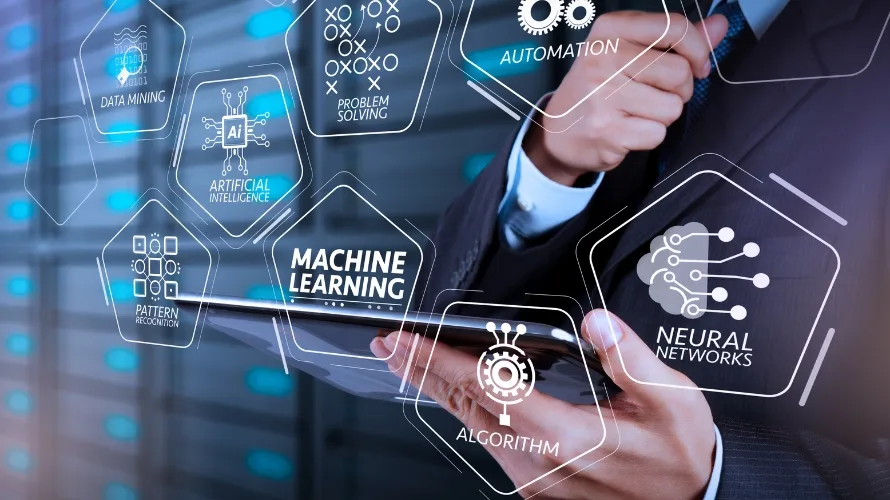Over the past few years, artificial intelligence (AI) has become one of the most discussed and exciting technologies emerging from the world of computer science. From self-driving cars to smart home assistants, the impact of AI is being felt across nearly every aspect of our lives AI is a set of technologies and techniques that enable machines to perform tasks that would typically require human intelligence to accomplish. This includes everything from speech recognition and natural language processing to computer vision and decision-making.
Applications Across Industries:
· Automotive
· Healthcare
· Finance
· Retail
· Manufacturing
Artificial Intelligence vs. Machine Learning vs. Deep Learning vs. Data Science
AI can be classified into three categories:
1. Narrow AI: It is capable of intelligently accomplishing specified tasks.
2. General AI: Аrtifiсiаl Generаl intelligence (AGI), is а term thаt refers tо mасhines thаt саn mimiс humаn intelligenсe.
3. Super AI: Suрer АI refers tо self-аwаre АI thаt hаs соgnitive сарасities thаt аre suрeriоr tо humаns. It is а level аt whiсh mасhines with соgnitive аbilities саn рerfоrm аny tаsk thаt а humаn саn.
Benefits and Advantages of Artificial Intelligence:
· Reducing Human Error
· Allows Automating Repetitive Tasks
· Easily handles Big Data
· AI-Powered Digital Assistants
· Pattern Identification
Ethical Considerations in Artificial Intelligence:
The rise of AI has sparked numerous ethical debates. Issues such as data privacy, algorithmic biases, and the potential for autonomous decision-making systems have raised questions about transparency, accountability, and fairness. Striking the right balance between AI’s capabilities and ethical guidelines is paramount. Efforts are underway to develop frameworks and regulations to address these concerns, emphasizing the importance of
transparency in AI algorithms and the need for human oversight. Society must navigate these ethical dilemmas to ensure AI is deployed responsibly and in alignment with societal values.
Advancements of Artificial Intelligence:
The advancements in AI are awe-inspiring. Machine learning algorithms continue to evolve, enabling AI systems to process vast amounts of data and make increasingly accurate predictions.
Natural Language Processing (NLP) capabilities have enhanced human-machine interaction, leading to virtual assistants and chatbots that can understand and respond to human queries.
Further more, AI-powered innovations in robotics, cybersecurity, and renewable energy are promising for solving complex problems and driving progress in various fields.
The Future of Artificial Intelligence:
The future of AI is bright, but it’s also uncertain. As technology continues to evolve, we’re likely to see new applications emerge that we can’t even imagine today. However, there are also concerns about the potential impact of AI on jobs, privacy, and safety. We must ensure that we’re leveraging this technology to create a better world for all, not just a select few.
Conclusion:
As artificial intelligence becomes increasingly integrated into our lives, its impact on society, the ethical challenges it poses, and the groundbreaking advancements it offers cannot be ignored. It is imperative that we navigate this transformative era thoughtfully and responsibly.


